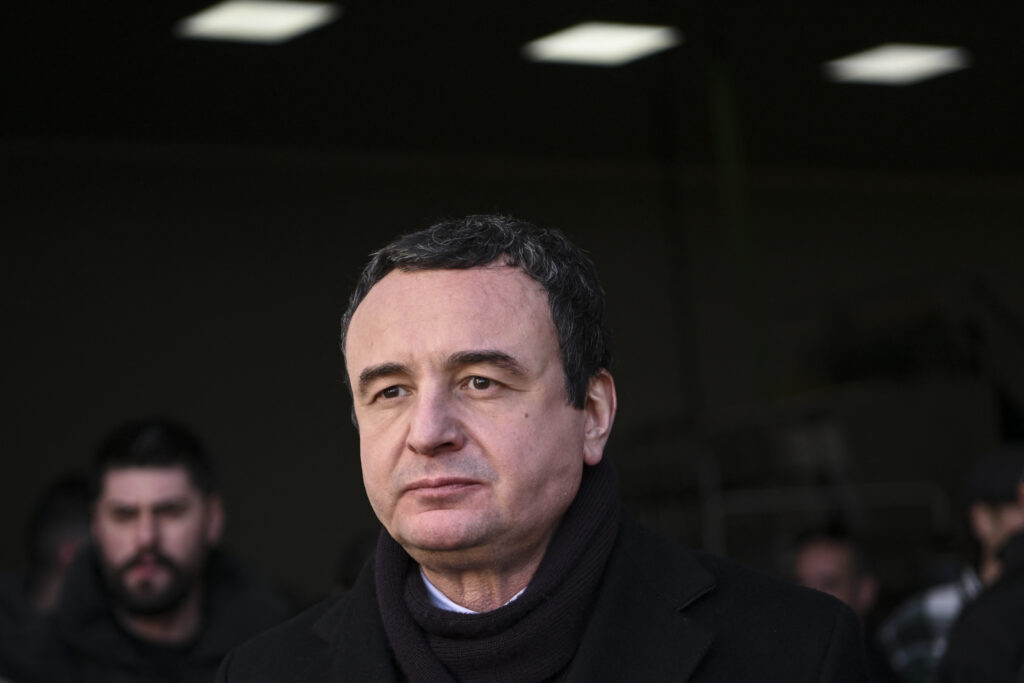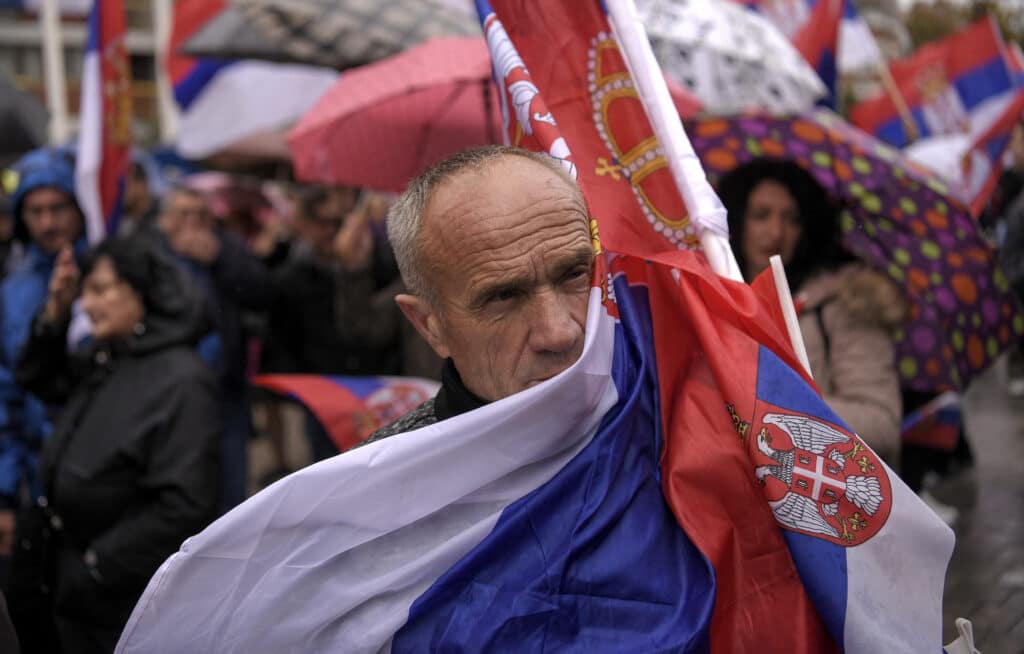Brussels – As expected, outgoing Kosovo Prime Minister Albin Kurti again won the elections. But this time, it will be more difficult to govern because his party did not get an absolute majority and will have to form a coalition. Whoever comes to power in Pristina, one of the main issues for the next few years will be relationships with neighboring Serbia, which, however, do not seem likely to improve quickly.
There were no major twists and turns – at least compared to polls had forecast before the vote – in the legislative elections held yesterday (Feb. 9) in Kosovo, in which just 40.6 percent of eligible voters took part, compared to nearly 48.8 percent in 2021. Just under 800,000 voters cast ballots in Europe’s youngest country, while more than 14,000 ballots were reportedly collected from communities in the Diaspora, although their count will most likely be finalized tomorrow.
With about 90 percent of the votes counted, according to Central Election Commission data, the party of outgoing premier Albin Kurti, Vetëvendosje (VV — literally “Self-Determination”), is in the lead, with 41.05 percent of the votes cast. In second place, distantly, is the Democratic Party of Kosovo (Partia Demokratike e Kosovës, PDK) at 22,26 percent and, then the Democratic League of Kosovo (Lidhja Demokratike e Kosovës, LDK) at 17.6 percent. It is a decline of over 9 points for the center-left VV, while the PDK and LDK (the two main center-right parties) grew by about 5 percentage points. The fourth party, the Alliance for the Future of Kosovo (Aleanca për Ardhmërinë e Kosovës, AAK), won just under 7.6 percent, slightly improving on its 2021 result.

Numbers in hand, this means that, in contrast to the past four years, Kurti will not be able to govern alone in the new legislature, as his VV will be far from the 61 seats needed to obtain the absolute majority on the 120 in the Kuvendi, Kosovo’s single-chamber parliament, and will therefore need to lean on another party to form an executive. He implicitly admitted it last night, stressing that “our winning coalition will form the new government.”
Kurti also minimized the possibility, which some analysts, that the three opposition forces may unite to exclude the VV from the government: “It is clear to anyone that (the PDK and the LDK, ed.) are in second and third place and even if they unite they cannot compete with Vetëvendosje,” he said. On the other hand, LDK leader Lumir Abdixhiku publicly admitted defeat: “Although we had a considerable increase” in support compared to 2021, “this result is not satisfactory,” he noted, taking responsibility for “a result we respect.”
As predicted, finally, the Serbian List (Srpska Lista, SL) will get all 10 seats that the Kosovo Constitution reserves for the Serbian minority in the hemicycle. SL is politically close to the authorities in Belgrade and to President Aleksandar Vučić, who is currently facing a wave of protests of historic magnitude but who nevertheless congratulated the party’s election result.
The election shows a country in limbo, in which the acute political polarization generates a situation of uncertainty that could turn into a prolonged stalemate. The last legislature, dominated by Kurti’s VV, was the first in the (short) history of the Balkan nation to last for the full four-year term. However, it is not a foregone conclusion that the new one that emerged from yesterday’s vote will manage to remain in office until 2029.

Both the PDK and the LDK (which combined should have 45 seats) have excluded allying with the VV to form an executive. However, even for them, it would not be easy to put together a coalition broad enough to govern, excluding the outgoing premier’s party (which, together with its allies, should have 47 seats).
Most importantly, the main issue for the new executive – whatever its political color – will be relations with Belgrade, which have been complex in recent years due to Kurti’s dominantly nationalist stance. The long-standing issue of normalizing diplomatic relations between Kosovo and Serbia remains high on Pristina’s international agenda. Pressure to achieve some results will increase in the coming months due in part to the decision by new president Donald Trump to freeze US development funding, which was providing oxygen to the stagnant economy of the Balkan country. In such a context, moreover, the EU-mediated Pristina-Belgrade dialogue has been on shaky ground for two years.
As some observers highlighted, for that matter, the ideas on the table for the resumption of relations between the two states – for example, the creation of an association of Serb-majority municipalities in northern Kosovo or the land swap hypothesized by the US president – appear electorally unappealing. It is unlikely that the leaders of any party will take on the responsibility of translating them into reality. Given the political instability that has emerged from the polls and the possibility of the calling of early elections in the short term (from which the opposition would likely emerge strengthened), there seem to be meager incentives for progress on the road to normalization.
English version by the Translation Service of Withub





![La presidente della Bce, Christine Lagarde, nell'Aula del Parlamento europeo [Strasburgo, 10 febbraio 2025]](https://www.eunews.it/wp-content/uploads/2025/02/lagarde-aula-120x86.png)

